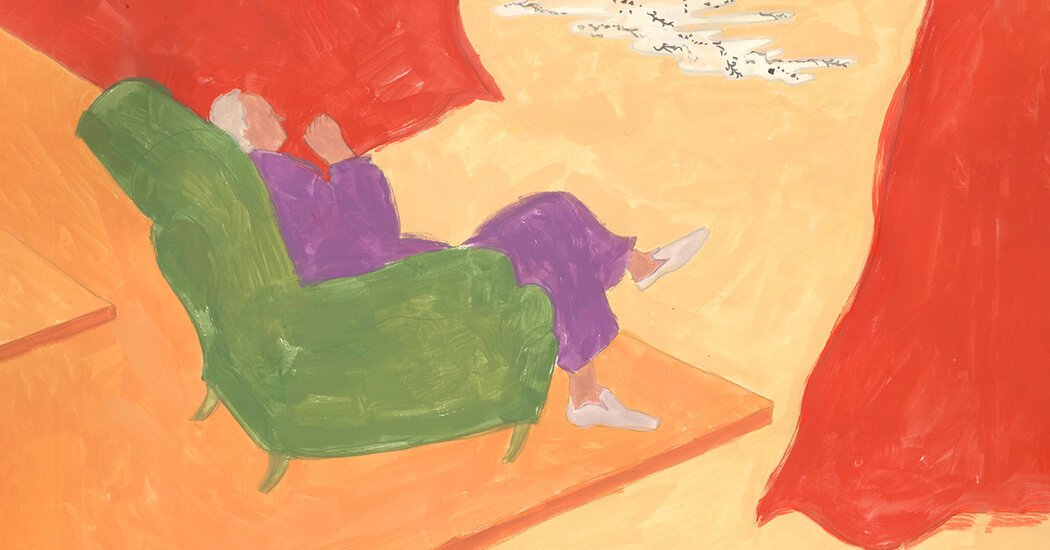During the play’s intermission, Sophia’s father spars with a young freelance writer who barely keeps at bay her disdain for him. Countless hours spent online prepared her to rattle off a litany of groups he’s insulted: “Jews. Muslims. Catholics. Christians,” she sneers. “Jeremy Corbyn. Paris Hilton. The working class. Old people. Old authors. Young authors.” All the while, Sophia’s father limply grasps an unlit cigarette and later struggles not to wet himself — paging Dr. Freud!
His opponent and the exchange more broadly feel garishly typecast, cartoonish. In this one interlude the book loses its footing. Overall, Hamya’s staging is savvy; each scene is packed with implication and, often, wit. With Sophia’s father trapped in his seat and flooded by her point of view, unable to protest or rebut, the setup resembles a tidy revenge fantasy, as if it were done up with hospital corners. Tidy, but also limiting: “I’m frustrated,” Sophia tells her therapist, “by having come up in an age where bonding over trauma seems more correct than bonding over a shared laugh.”
The novel’s most gutting sequence details a stilted FaceTime call after the performance, with Sophia’s father in a cafe restroom, raw with emotion, his brioche and coffee balanced on the toilet cistern. Sophia weeps as she did when she was a young girl. He refuses, gently, to join the Wi-Fi, unwilling to attempt a solution beyond his comfort that might ease their connection.
Who is the hypocrite of the title? The unexpectedly thin-skinned career provocateur, or the playwright who doesn’t accept that her fixations might be as megalomaniacal and scalding as her father’s? Privately, the aging writer concedes that the play is “like the novel Sophia helped him write, but better.” By the end he’s planning his next act, a dreadful-sounding “internet novel” structured like the Bible, and it seems clear that father and daughter will joust for another round through their writing.
“You’ve Me Too’d me. Is there anything I’m allowed to say?” he asks her, crossly. “Or will it end up in the sequel?”
THE HYPOCRITE | By Jo Hamya | Pantheon | 233 pp. | $26
Read More: A Man Goes to See His Daughter’s Play. Turns Out It’s About Him.


